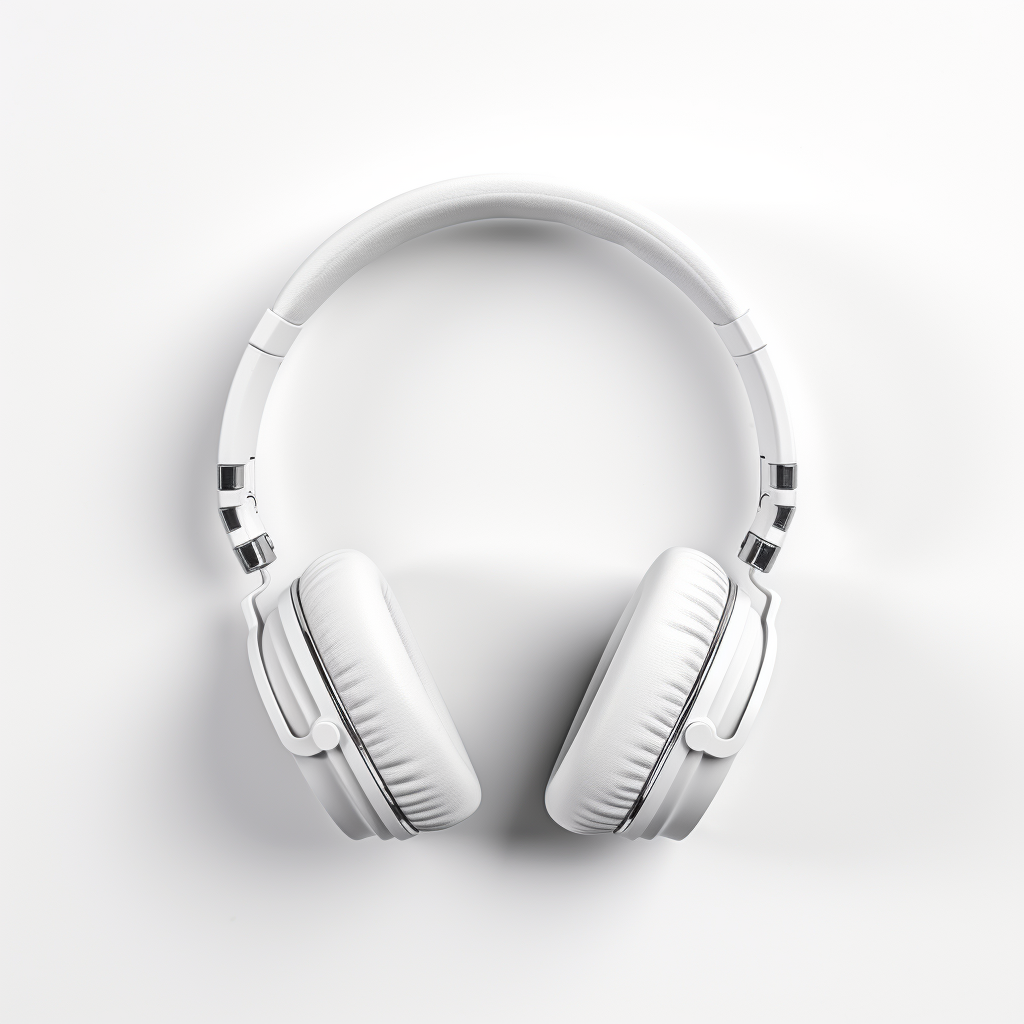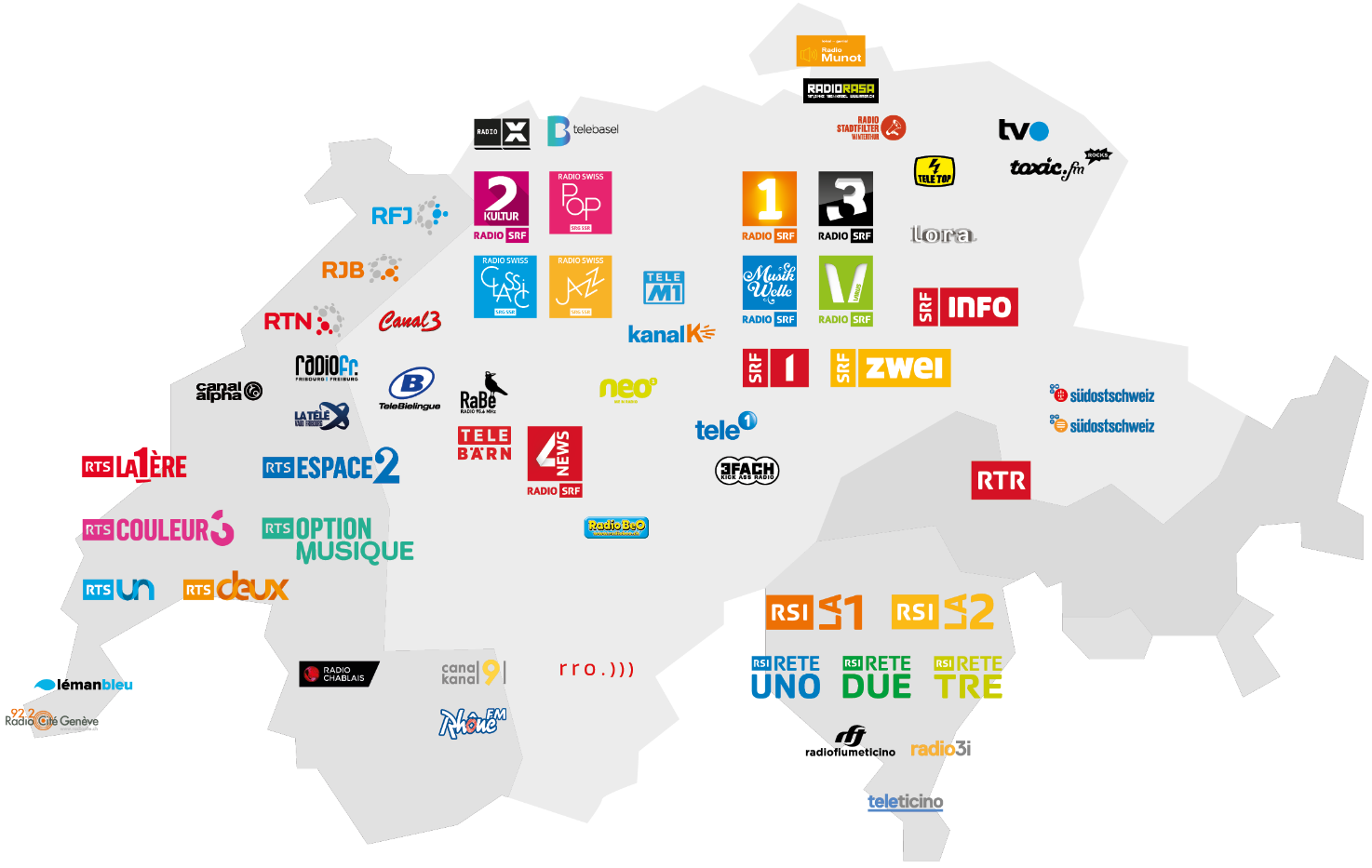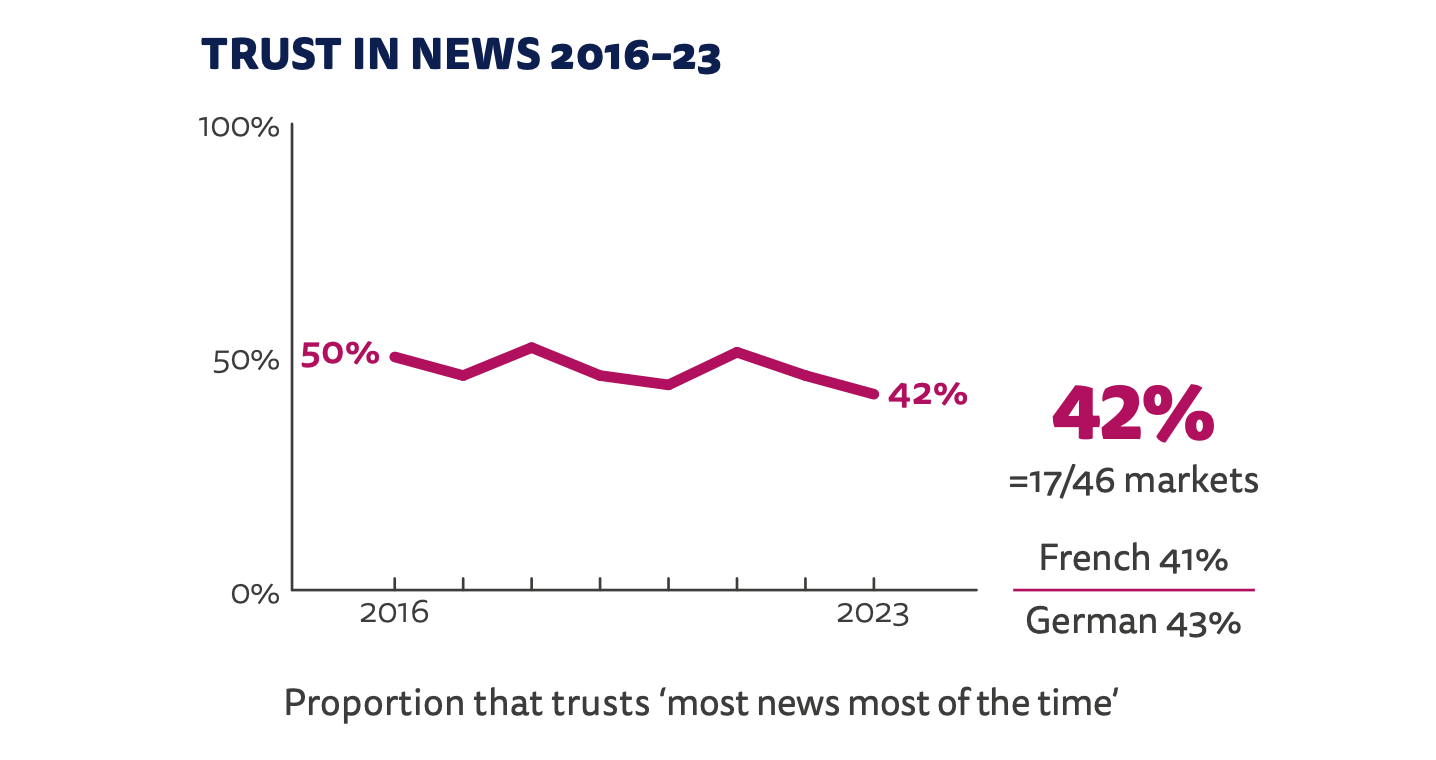
Summer 2023: The committee for «200 Franken sind genug!» (200 Swiss Francs are enough!) submitted the necessary signatures for a new referendum in Switzerland.
The so-called «Halving Referendum» aims to slash the yearly fee for the country's public broadcasting service—from 335 Swiss Francs per household to 200 Swiss Francs.
If successful, it would have a significant negative impact on the Swiss music industry.
The fees fund the national public radio and broadcast «SRG» as well as several private media institutions. Around 1,3 billion Swiss Francs are collected yearly and distributed—with SRG receiving approximately 1,2 billion.

The new referendum is the second attack on the broadcasting fee after the «No-Billag» referendum that intended to eliminate the fee entirely. The referendum was rejected in March 2018 with 71,6%.
High Chance of Success
While «No-Billag» had no chance at the voting booth with its radical approach, times have changed since then. The «Halving Referendum» has significantly more potential for success for two reasons:
- Trust in journalism is at an all-time low.
- The referendum wants to reduce the fee, which is attractive to many.
In fact, a survey in October 2023 showed that 61% of participants favoured the referendum. Already in February 2022, voters rejected a package for media subsidies, which entailed the additional support of various types of outlets like digital publications.

Another Far-Right Push Against Independent Journalism
It is barely surprising that most of the leading figures behind the «Halving Referendum» are part of the far-right Swiss People's Party (SVP).
As part of the committee's co-presidency, there is Hans-Ulrich Bigler, who was already leading the «No-Billag» referendum, alongside Thomas Matter, a private banking multimillionaire and second-richest member of parliament. The latter had already demonstrated his clear intentions: He used a video by the public broadcaster for his YouTube channel and cut it in a completely misleading way to promote the new referendum.
Trump Fans, Islamophobic, Convicted For Racism: The Members of The Referendum Committee
The committee has even more members with highly questionable or even racist actions in the past and present:
- Jean-Luc Addor, an SVP parliamentarian, tweeted, «We want more of that» after a shooting in a Swiss mosque where a person was killed. Switzerland's highest court sentenced him for racial discrimination. In 2013, he suggested reintroducing capital punishment.
- Franz Grütter, millionaire and SVP parliamentarian, showed great affection for Donald J. Trump, stating that «he is credible because he puts the interests of his own country back at the centre.» He was doubting that Trump would build a wall.
- David Trachsel, president of the SVP's youth party, not only threw around dictatorship accusations during the pandemic but has an affection for right-wing extremism, supports limited access to abortion and installed a whistleblowing site for allegedly «woke discrimination».
- Walter Wobmann, a former SVP parliamentarian and part of the «Egerkinger Comittee» alongside members like Niels Fiechter, convicted racist, and Anian Liebrand, convicted for defamation. The «Egerkinger Comittee» was responsible for the referendum against «facial covers» and the construction of minarets. Wobmann is also a member of the far-right organisation Pro Schweiz, formerly AUNS, which lobbied against Switzerland's entry into the UN.
Even masqueraded behind moderate and surface-level reasonable arguments, the idea behind the referendum is a further destabilisation of independent journalism. It is only one side of a long-term project by Switzerland's conservatives and far-right.
On the other side, they started to buy into the market themselves with the shady purchase of the weekly magazine «Weltwoche» in 2001, the purchase of 25 free weeklies by billionaire and SVP overlord Christoph Blocher, and the takeover of the satirical magazine «Nebelspalter» in 2020.
More Than 900 Jobs On The Line
In November, the Federal Council, Switzerland's highest executive body, presented their counterproposal to the referendum. Albert Rösti, the responsible minister and former SVP party president, suggested cutting the broadcast fee step-by-step to 300 Swiss Francs until 2029. The referendum's committee is against the proposal.
The bizarre sidenote here is that Albert Rösti is still part of the referendum's committee, although they removed him from their website. He is not allowed to leave because his name was on the signature ballots for the referendum.
Later, the SRG published a press release stating:
«With the decline in advertising revenue and the cancellation of the cost-of-living adjustment, SRG would lose up to 240 million Swiss Francs from 2027. Around 900 jobs would have to be gradually cut across all regions.»
When speaking anonymously to SRG employees, they see the 900 jobs on the line with the counterproposal as too low. «For every job lost at SRG, one is lost in the private market,» explained one journalist. Many editors, camera operators, and filmmakers are individual contractors who would also lose their engagements with the radical cuts.
The job losses would obviously be even more severe if the referendum succeeds.
Devastating Impact on Swiss Music Journalism
There is undoubtedly necessary criticism one can direct towards the SRG and its offering. Switzerland needs an informed, transparent, and sober discussion about the value of independent journalism, public service broadcasting, and the responsibility of the SRG in today's digitised media landscape.
However, the last bastion of music journalism will likely receive a big blow. Public radio already had to cut back on its high-quality music specials. Generally a niche interest, music reporting is an endangered candidate for budget cuts.
Public broadcasting and independent, often volunteer-run radio stations are the only remaining publications covering music in depth. Commercial private radios, so-called format radio stations, mostly play the most popular songs and contribute very little to the diversity of Swiss music.
Switzerland's written music journalism is dominated by non-professionals and blogs like Negative White. Prominent newspapers have chopped down their cultural reporting long ago—because, again, it remained a niche interest and seemed non-essential to the business of selling ads.
Consequences For Artists Down The Line
While written music journalism is past its peak, radio still plays a significant role for musicians as airplay generates attention and real money through royalties, generating significantly more revenue than streaming. In 2022, the Swiss royalty institution SUISA paid a record-breaking 180,5 million Swiss Francs to publishers, songwriters, and composers.
On the national level, budget cuts will potentially impact the number of available radio stations. Fewer stations—for example, abolishing the music-only station «Radio Swiss Pop»—means fewer airplay opportunities for artists and, therefore, less revenue.
According to Albert Rösti, the SRG should «focus more strongly on the areas of information, education and culture.» However, this statement is rather vague.
The SRG counters that the counterproposal will impact «co-productions of Swiss films and music recordings as well as major popular events.» Therefore, music recordings like extensive festival reporting or maybe even formats with a significant live music portion like «SRF 3 Best Talent» or the «Bounce CYPHER» could be on the line.
And if the distribution of the broadcast fee money changes, non-commercial local radios might face a life-and-death situation. Smaller indie stations like Kanal K, Radio Lora, or Radio 3FACH are essential institutions on the regional level. They are part of a fragile independent music ecosystem that provides a platform to newcomer artists and an opportunity for discovery for their listeners.
Less radio exposure also impacts an artist's concert opportunities. Airplay is already a significant factor in booking an artist for a show, with higher chances for those with airplay getting chosen.
A reduced media landscape with fewer radio stations providing this valuable asset will lead to even higher competition—and ultimately damage the Swiss indie music landscape.
Consumer Ends Up With Less
While Switzerland will not vote on the referendum before 2026, saving a couple of bucks yearly might seem attractive to a regular consumer, especially when everything gets more expensive.
However, we can see what happens with the privatisation of sports broadcasts: If you want to watch every game of the Super League, Switzerland's highest soccer tier, the yearly subscription costs 418 Swiss Francs.
While sports provide a big enough target audience for such an offer, it is unimaginable to have a similar service for, let's say, festival streams. They would rather not exist anymore—narrowing the available content overall.
With its shotgun approach, the «Halving Referendum», while targeting independent journalism, will kill a significant portion of music reporting. And take away many opportunities for Swiss musicians—especially newcomers.





